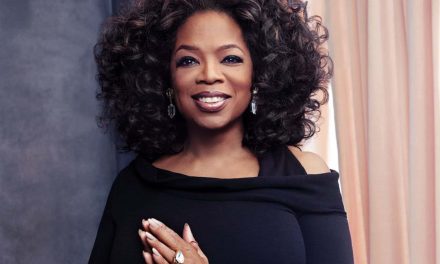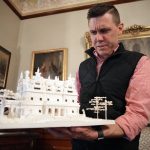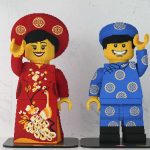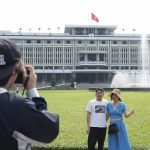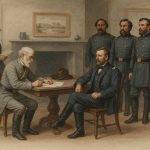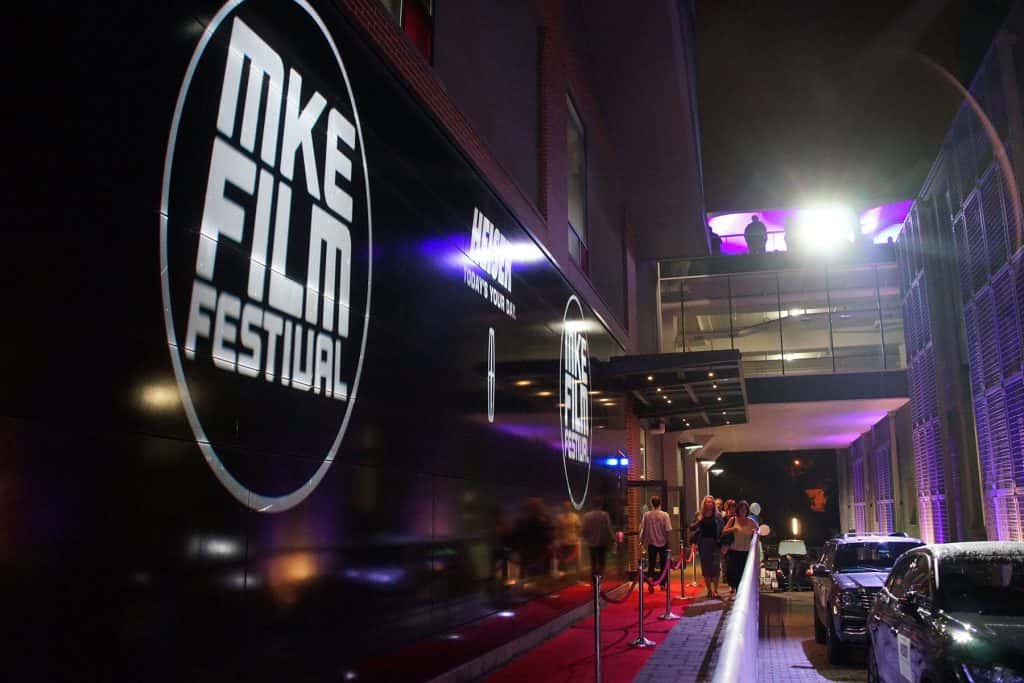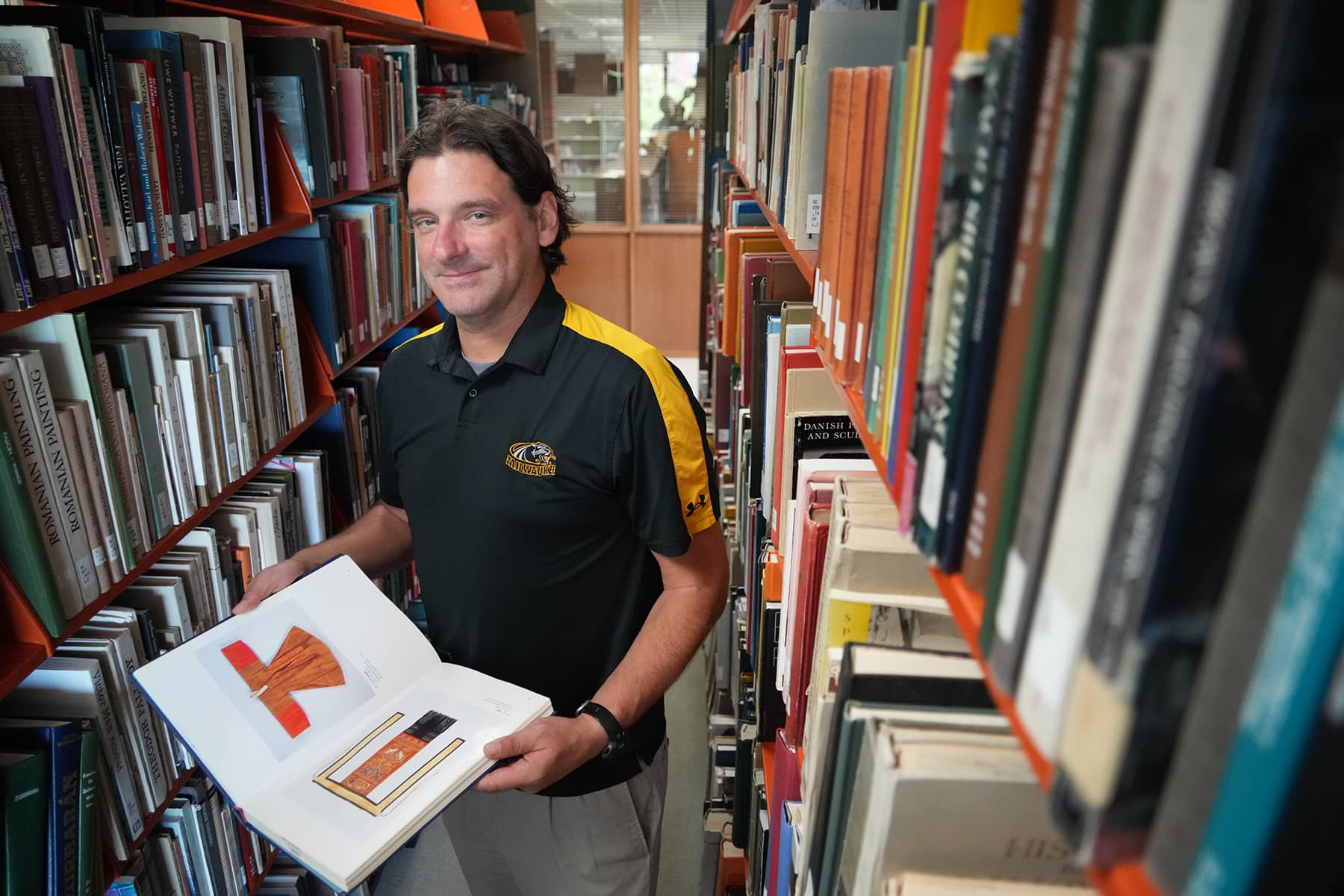
The simplicity and routine of a small town in Minnesota shaped the childhood memories of Christopher Michael Doll, revolving around sports, family outings, and a tight-knit community. It would be a source of both solace and contrast many years later when Doll found himself living in a city of millions in South Korea.
When Doll grew up in Farmington, Minnesota just south of the Twin Cities, the population was only around 5,000. It was a small farm town without much diversity.
“Now the population is something like 25,000. I don’t recognize anything from when I was growing up,” said Doll. “I had a very strict Catholic family and we were not well-off, so got by enjoying simple things. We would take vacations to Duluth, or some theme park. But I never got to go to New York or any of those exciting places.”
Doll said that despite the disappointments that came with his family’s modest income, his childhood was still fun and full of fond memories. He spent a lot of time fishing and going to the lakes, or playing baseball and other sports with his brother – then later with his sister as well.
While his hometown was predominately White, Doll’s home became multicultural when his parents decided to adopt a Korean girl in August of 1989. Her addition to the family would go on to play an unexpected yet central role in his life.
“My parents always wanted a daughter but didn’t have one, it was just my brother and me. So they started looking into the adoption process and, through their research, they found an organization called Catholic Charities,” said Doll. “A social worker came to our house to interview us and see if we would be a good fit. My brother and I were playing baseball in the backyard at the time, and she interrupted our game to ask us questions – which we didn’t like.”
Doll was asked what he thought about having a Korean sister, to which he immediately replied, “I will never play with her.” The answer shocked his parents, but the social worker followed with the question, “Because she’s Korean?”
“I said, ‘No, because I want a brother. I want to play baseball.’ And the social worker was like, ‘Well, what if she plays baseball with you?’ And I was like, ‘okay, that’s cool.’ We can do that.”
The arrival of his sister marked the beginning of Doll’s exposure to Korean culture. His family made every effort to ensure that his new sibling, and by extension the entire family, stayed connected to her Korean heritage.
“I honestly never thought of her as Korean. She was my sister. But we did go to Korean Culture Camp as a family every year,” said Doll. “My parents encouraged my sister to learn Korean and learn how to sing Korean songs, and they encouraged us to learn also. My brother and I took language classes and things like that, but we were more focused on learning taekwondo.”
Around the 6th grade, a Korean student joined his class. His mother persuaded him to become friends with her, saying he had to be nice to Korean people.
“In retrospect, I think it was in part because my mom wanted people to be nice to my sister,” said Doll. “So I had to set a good example.”
Doll said that her Korean heritage always remained an important part of his sister’s American experience. She would celebrate her birthday and her coming to America Day by going out for Korean food.
“One of the reasons I first wanted to go to Korea was so my sister could come and visit me, which she did three times,” said Doll. “But I don’t think she really enjoyed being in Korea. I think that made her feel more misplaced than ever.”
Cultural elitism is a common frustration Korean adoptees face when they return to their homeland and try to reconnect with their lost heritage. Korean nationals can have certain expectations or judgments about what it means to be “truly Korean,” often based on language proficiency and understanding of social norms.
“We’d be talking in English on the subway, and every day there’d be some stranger who interrupted us to yell at her, saying because she’s Korean she should be speaking Korean,” said Doll. “Or they’d be saying other mean things like, ‘why do you dress that way? You dress like an American. You’re a Korean. Why are you doing that?’ But my sister didn’t understand what they were saying. By that time I could understand Korea really well, so I just said, ‘They’re telling you that you’re very pretty.’ And she’s like, no. They’re not.’ So there were some frustrating experiences for her.”
Being the only ethnic Asian in her school, Doll knew that his sister had faced other difficulties over her identity growing up. Some of the challenges included name-calling and bullying. But she never let others know that it bothered her.
“I asked her if she ever had the desire to find her birth family in Korea. I knew it was impossible because she was a closed adoption. And when Catholic Charities dissolved all the records were lost,” said Doll. “But her attitude was, ‘No, I don’t need to search. You guys are my family.’ So she never had the motivation to look.”
Doll was the first one in his family to attend college, a very big deal considering their limited financial resources. He was also from the generation that thought all someone needed was a college degree and they could get any job they wanted. However, graduating with an English degree turned out to not be as marketable as he had expected.
“I was at a career fair, and there was one booth with no line. It was for the JET Program, teaching English in Japan. I thought, ‘This sounds kind of cool. I can figure out what I want to do with my life, move to someplace interesting, and they’re going to pay me to do it.'”
When they heard about his plans, his parents were not sure if they wanted him to be so far away from them for a year. Then his mother suggested teaching English in Korea. Doll liked the idea and did some research. He realized that was the path he wanted to follow.
“I decided to major in Korean studies from Yonsei Graduate School of International Studies. That was the kick I needed to learn Korean. Because to earn your degree, you had to pass the Korean proficiency level,” said Doll. “When I first got there it was a real struggle. I think Seoul is bigger than New York City, so I had that wrong impression before I got there. Every day I told myself, ‘I have 317 days left. I have 316 days left.’ It was just so different that I could not wait to leave. But then all of a sudden, it flipped. Then I was saying, ‘I only have 90 days left. I only have 89 days left,’ because I really wanted to stay.”
In those days of his early 20s, Doll had long hair and a beard. So everywhere he went people would point at him and say, “Yesu, Yesu, Yesu,” which in Korean meant Jesus (예수). At other times he would face anger or hostility, in reaction to the American military presence when some altercation occurred. Particularly during George W. Bush’s presidency, Doll said his other American friends would say they were Canadian to avoid hassles.
“The older people would always want to shake my hand and say ‘thank you’ for what America did to help them in the Korean War. They really appreciated us,” said Doll. “But then the younger generation would tell me that this was Korea and I should go home, I was not wanted here. Just stay out. It didn’t matter that I told them I’m not military. So there’s a huge dichotomy between the generations, with what they remember and their experiences.”
Doll said he did not focus on the Korean War much, and never actively sought out historical landmarks where battles took place. But over the course of time, he still ended up visiting those places. For six years Doll actually lived in Uijeongbu. It was the city that served as a home for the fictional 4077th Mobile Army Surgical Hospital in the popular TV series M*A*S*H.
“I did see a lot, it was impossible not to. Uijeongbu is between Seoul and the DMZ with North Korea,” said Doll. “Every day I went running around the river that was the route the North Koreans took to invade South Korea.”
Despite social obstacles, Doll immersed himself in the culture, participating in local traditions and eventually meeting the Korean woman who would become his wife. It was her influence that also helped to change his perspective on Korea.
“When I wasn’t working, my home routine was all the things I did in America. So I asked myself, ‘Why am I even here?’ That motivated me to finally get out and become involved in local things. And then I met my wife,” said Doll. “She exposed me to a lot more about Korean culture. Although the funny thing is, I introduced her to a lot more about Korean culture too. Because when you grow up somewhere, it’s just there all around you. It’s hard to be a tourist in your own town. She never went to museums or temples because she grew up knowing about them. Since she wanted to introduce me to all these things, many of the places we went to were also her first time to visit.”
Twenty years of marriage to a Korean woman brought its own set of cultural challenges and revelations. Doll was fortunate to not face much public scrutiny as a mixed-race couple, particularly in the later years of their marriage. But in the first year, there would be slights directed at him as a foreigner.
That period marked a significant turning point in his life, as Doll began to see South Korea not just as a temporary place to work, but as a home where he could build a future – at least for as long as he was able.
It can be difficult for foreigners to retire in South Korea, even if their spouse is Korean. Job opportunities also decrease as foreigners age in most professions, because younger workers can be hired for much less. So after more than a decade, Doll and his wife considered returning to the United States to live. It would be much easier to transplant and rebuild their careers while they were still relatively young.
“Before we left, I remember heading home one day and this little girl was walking with her mom. When the little girl saw me, she pointed at me and in Korean said, ‘Oh, look there’s a foreigner.’ So I stopped and looked around, and replying in Korean I asked, ‘Where?’ She kept pointing at me, so I asked her, ‘How old are you?’ She said, ‘I’m eight.’ And then I told her I had lived in Korea for twelve years. She had only lived there for eight years. ‘If I was a foreigner, what did that make her?’ It really puzzled her, but then it gave her a good laugh,” said Doll.
Another time, before he left South Korea to move back to America, Doll was looking out the window of his apartment when a thought struck him. He grew up in an American town of about 5,000 people. Around 3,000 people were living in his Korean apartment complex. From his window, he could see another twelve apartment complexes. It was a little mind-boggling to Doll that just the one complex where he lived had a population nearly equal to his hometown.
“One of my first memories after getting back to the United States was when I was at a store,” said Doll. “I heard people speaking English and my first thought was in Korean, ‘Oh, there’s other foreigners here.’ I said that in my mind. And then I walked around the corner to see who they were. Because I didn’t often hear people speaking English in Korea. And then I was like, wait, I’m in America.”
Despite the challenges of readjusting to life after relocating to Milwaukee, Doll’s experiences in South Korea had given him a unique perspective on cultural exchanges. As someone deeply immersed in both cultures, he was proud to see the American public embrace Hallyu, the Korean culture wave. But Doll also had concerns over the superficial ways in which Korean culture was often consumed.
“It’s great that people enjoy Korean entertainment, but I wish more would engage with Korean culture beyond just the lens of K-pop and cuisine,” Doll added. “If that’s what interests them and brings them in, it’s still great. But there is a deep history to explore, which has made a lot of contributions to America and the global society.”
- Exploring Korea: Stories from Milwaukee to the DMZ and across a divided peninsula
- A pawn of history: How the Great Power struggle to control Korea set the stage for its civil war
- Names for Korea: The evolution of English words used for its identity from Gojoseon to Daehan Minguk
- SeonJoo So Oh: Living her dream of creating a "folded paper" bridge between Milwaukee and Korean culture
- A Cultural Bridge: Why Milwaukee needs to invest in a Museum that celebrates Korean art and history
- Korean diplomat joins Milwaukee's Korean American community in celebration of 79th Liberation Day
- John T. Chisholm: Standing guard along the volatile Korean DMZ at the end of the Cold War
- Most Dangerous Game: The golf course where U.S. soldiers play surrounded by North Korean snipers
- Triumph and Tragedy: How the 1988 Seoul Olympics became a battleground for Cold War politics
- Dan Odya: The challenges of serving at the Korean Demilitarized Zone during the Vietnam War
- The Korean Demilitarized Zone: A border between peace and war that also cuts across hearts and history
- The Korean DMZ Conflict: A forgotten "Second Chapter" of America's "Forgotten War"
- Dick Cavalco: A life shaped by service but also silence for 65 years about the Korean War
- Overshadowed by conflict: Why the Korean War still struggles for recognition and remembrance
- Wisconsin's Korean War Memorial stands as a timeless tribute to a generation of "forgotten" veterans
- Glenn Dohrmann: The extraordinary journey from an orphaned farm boy to a highly decorated hero
- The fight for Hill 266: Glenn Dohrmann recalls one of the Korean War's most fierce battles
- Frozen in time: Rare photos from a side of the Korean War that most families in Milwaukee never saw
- Jessica Boling: The emotional journey from an American adoption to reclaiming her Korean identity
- A deportation story: When South Korea was forced to confront its adoption industry's history of abuse
- South Korea faces severe population decline amid growing burdens on marriage and parenthood
- Emma Daisy Gertel: Why finding comfort with the "in-between space" as a Korean adoptee is a superpower
- The Soul of Seoul: A photographic look at the dynamic streets and urban layers of a megacity
- The Creation of Hangul: A linguistic masterpiece designed by King Sejong to increase Korean literacy
- Rick Wood: Veteran Milwaukee photojournalist reflects on his rare trip to reclusive North Korea
- Dynastic Rule: Personality cult of Kim Jong Un expands as North Koreans wear his pins to show total loyalty
- South Korea formalizes nuclear deterrent strategy with U.S. as North Korea aims to boost atomic arsenal
- Tea with Jin: A rare conversation with a North Korean defector living a happier life in Seoul
- Journalism and Statecraft: Why it is complicated for foreign press to interview a North Korean defector
- Inside North Korea’s Isolation: A decade of images show rare views of life around Pyongyang
- Karyn Althoff Roelke: How Honor Flights remind Korean War veterans that they are not forgotten
- Letters from North Korea: How Milwaukee County Historical Society preserves stories from war veterans
- A Cold War Secret: Graves discovered of Russian pilots who flew MiG jets for North Korea during Korean War
- Heechang Kang: How a Korean American pastor balances tradition and integration at church
- Faith and Heritage: A Pew Research Center's perspective on Korean American Christians in Milwaukee
- Landmark legal verdict by South Korea's top court opens the door to some rights for same-sex couples
- Kenny Yoo: How the adversities of dyslexia and the war in Afghanistan fueled his success as a photojournalist
- Walking between two worlds: The complex dynamics of code-switching among Korean Americans
- A look back at Kamala Harris in South Korea as U.S. looks ahead to more provocations by North Korea
- Jason S. Yi: Feeling at peace with the duality of being both an American and a Korean in Milwaukee
- The Zainichi experience: Second season of “Pachinko” examines the hardships of ethnic Koreans in Japan
- Shadows of History: South Korea's lingering struggle for justice over "Comfort Women"
- Christopher Michael Doll: An unexpected life in South Korea and its cross-cultural intersections
- Korea in 1895: How UW-Milwaukee's AGSL protects the historic treasures of Kim Jeong-ho and George C. Foulk
- "Ink. Brush. Paper." Exhibit: Korean Sumukhwa art highlights women’s empowerment in Milwaukee
- Christopher Wing: The cultural bonds between Milwaukee and Changwon built by brewing beer
- Halloween Crowd Crush: A solemn remembrance of the Itaewon tragedy after two years of mourning
- Forgotten Victims: How panic and paranoia led to a massacre of refugees at the No Gun Ri Bridge
- Kyoung Ae Cho: How embracing Korean heritage and uniting cultures started with her own name
- Complexities of Identity: When being from North Korea does not mean being North Korean
- A fragile peace: Tensions simmer at DMZ as North Korean soldiers cross into the South multiple times
- Byung-Il Choi: A lifelong dedication to medicine began with the kindness of U.S. soldiers to a child of war
- Restoring Harmony: South Korea's long search to reclaim its identity from Japanese occupation
- Sado gold mine gains UNESCO status after Tokyo pledges to exhibit WWII trauma of Korean laborers
- The Heartbeat of K-Pop: How Tina Melk's passion for Korean music inspired a utopia for others to share
- K-pop Revolution: The Korean cultural phenomenon that captivated a growing audience in Milwaukee
- Artifacts from BTS and LE SSERAFIM featured at Grammy Museum exhibit put K-pop fashion in the spotlight
- Hyunjoo Han: The unconventional path from a Korean village to Milwaukee’s multicultural landscape
- The Battle of Restraint: How nuclear weapons almost redefined warfare on the Korean peninsula
- Rejection of peace: Why North Korea's increasing hostility to the South was inevitable
- WonWoo Chung: Navigating life, faith, and identity between cultures in Milwaukee and Seoul
- Korean Landmarks: A visual tour of heritage sites from the Silla and Joseon Dynasties
- South Korea’s Digital Nomad Visa offers a global gateway for Milwaukee’s young professionals
- Forgotten Gando: Why the autonomous Korean territory within China remains a footnote in history
- A game of maps: How China prepared to steal Korean history to prevent reunification
- From Taiwan to Korea: When Mao Zedong shifted China’s priority amid Soviet and American pressures
- Hoyoon Min: Putting his future on hold in Milwaukee to serve in his homeland's military
- A long journey home: Robert P. Raess laid to rest in Wisconsin after being MIA in Korean War for 70 years
- Existential threats: A cost of living in Seoul comes with being in range of North Korea's artillery
- Jinseon Kim: A Seoulite's creative adventure recording the city’s legacy and allure through art
- A subway journey: Exploring Euljiro in illustrations and by foot on Line 2 with artist Jinseon Kim
- Seoul Searching: Revisiting the first film to explore the experiences of Korean adoptees and diaspora




















